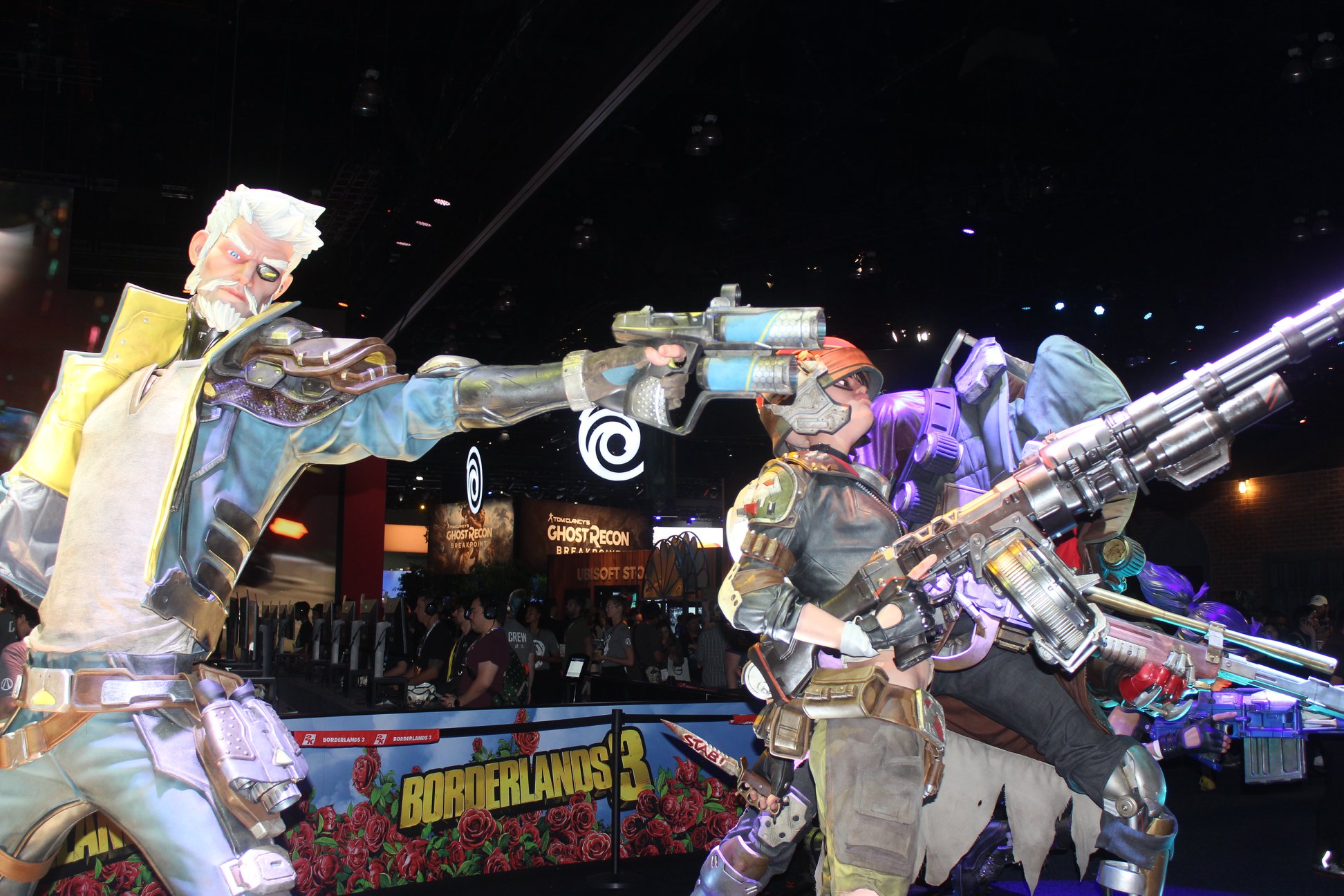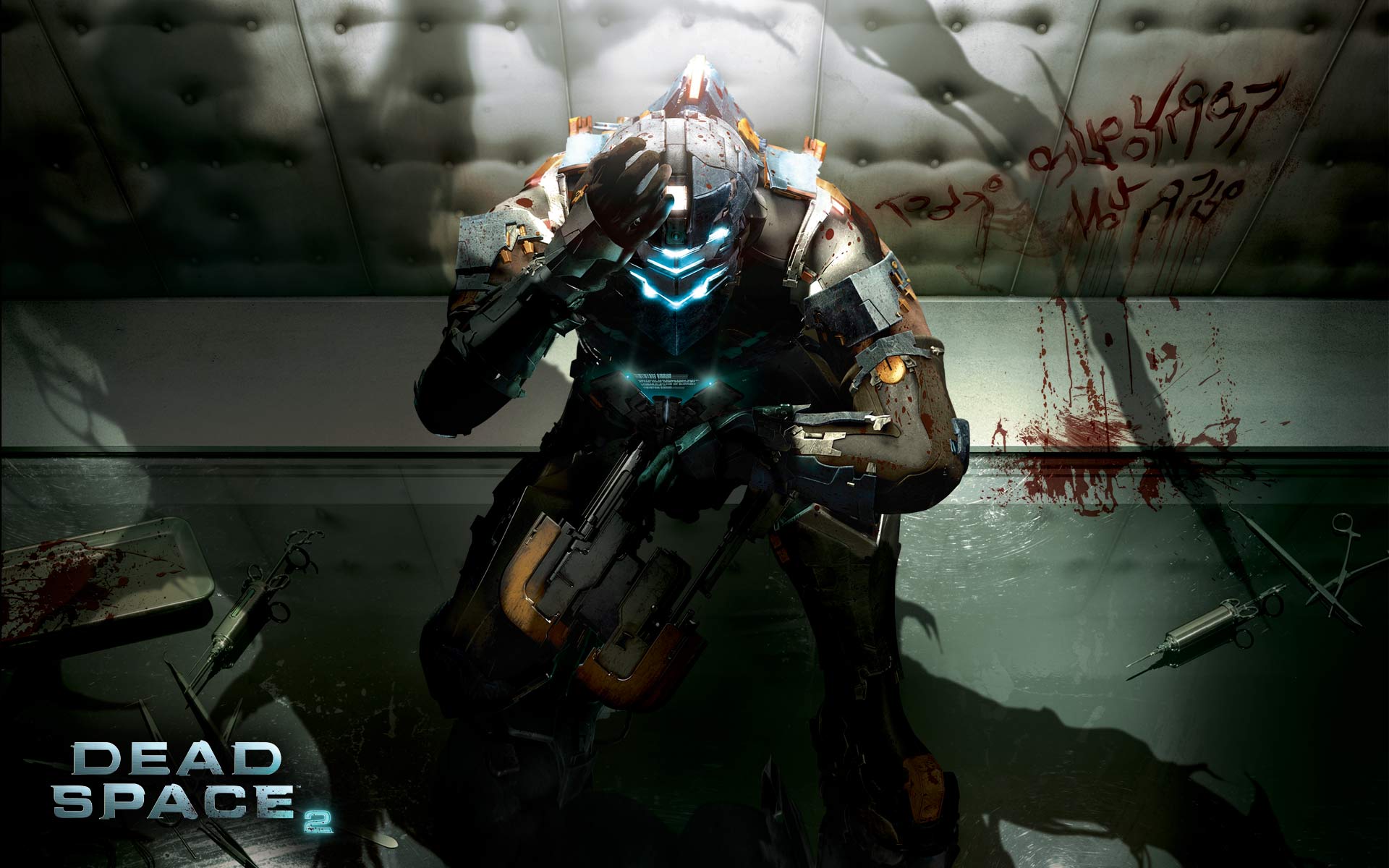Michael Condrey has hired dozens of game developers for his new studio, tentatively titled 2K Silicon Valley.
In doing so, the former Sledgehammer Games co-studio head who brought us games like Call of Duty: World War II and Dead Space has a chance to shape the culture of a game studio with a modern approach. And he is conscious about what that means for diversity, the games that the studio will choose to work on, and how much impact gaming will have on impressionable minds.
I caught up with him in the wake of the Electronic Entertainment Expo (E3), the big game trade show in Los Angeles, and he told me how torn he was about the choices Activision’s Infinity Ward studio is making with its latest title, Call of Duty: Modern Warfare. He said he supports the right of artists to make the game they want to make, but he said it is a “tough challenge” if the studio is being “pushed by publishing to be more controversial and ‘darker’ for the sake of headlines.”
Condrey isn’t squeamish. He has made violent games like Dead Space, Call of Duty: Advanced Warfare, and Call of Duty: WWII. And his studio contributed to Call of Duty: Modern Warfare 3. But he said games should be respectful of the global community.
June 5th: The AI Audit in NYC
Join us next week in NYC to engage with top executive leaders, delving into strategies for auditing AI models to ensure fairness, optimal performance, and ethical compliance across diverse organizations. Secure your attendance for this exclusive invite-only event.
Here’s an edited transcript of our interview.

Above: Dean Takahashi and Michael Condrey speak at GamesBeat Summit 2019.
GamesBeat: E3 seemed very different this year, with no Sony, EA, or Activision Blizzard on the show floor. What did you think of the event and where it is going?
Michael Condrey: This year was my 20th E3. It has been the premier industry event in North America throughout my career, and many of my most memorable moments are tied to the show – including our very first hands-on demos of Dead Space, MW3, AW, WWII, and others.
For developers like myself and the team, the chance to share our passion and art with the world, backed by the energy of industry’s biggest trade-event it’s a tremendously powerful feeling. I love seeing fans having more access to the floor. The shift to allow public passes happened the year I was there with Call of Duty WW2 and the new energy was incredibly contagious. That said, this year did seem very different.
It was great to see Nintendo with an amazing experience for the fans. 2K had an impressive booth supporting Borderlands 3. However, there was a distinct absence in both halls that left me feeling like the show was missing the magic that it had in past years. I’ll be very interested to see if E3 regains a stronger foothold next year with both Microsoft and Sony leaning hard into their new console launches and next-generation games in 2020.

Above: Borderlands 3 was one of the few big games at E3 2019.
GamesBeat: Do you take away any lesson for your studio?
Condrey: It’s always great to see what other talented development teams are doing. While there was not a lot in terms of surprises and lessons for me this year, the breadth of attention on streaming and subscription services (beyond Stadia and xCloud) was wider than I expected. As a fan, I look forward to learning more about the gaming content behind those efforts.
GamesBeat: Activision didn’t show Call of Duty: Modern Warfare on the show floor this year. That’s a departure from the past. I wrote about how I saw it behind closed doors in a preview and I found it to be pretty disturbing. I also saw other journalists with similar takes after they saw it behind closed doors at E3. What is your interpretation of that?
Condrey: I maintain that video games are the most important art form of our time. I respect every developer who strives to deliver their work as an extension or reflection of their artistic vision. That said, MW seems like a tough challenge for any studio, especially if they are being pushed by publishing to be more controversial and “darker” for the sake of headlines.

Above: Call of Duty: Modern Warfare is a darker take on the long-lived franchise.
GamesBeat: You ran a studio making Call of Duty Games, including Modern Warfare 3. What are your reactions to what you have seen and heard so far on the Modern Warfare reboot?
Condrey: I absolutely loved the original Modern Warfare series, and working on MW3, at the height of the franchise’s popularity, was a special opportunity. I also believe in creative freedom and artistic expression in our medium. Our efforts on MW3 were focused on storytelling in a universe that dealt with intense conflict but was also very clearly fictional. And with WWII our team strived to pay tribute to a conflict like no other. But the world has changed a lot in the last decade and events like Sandy Hook, Las Vegas, and Christchurch are real and heartbreaking. So, I’m torn Dean, to be totally honest.
GamesBeat: What do you think about the game’s modern setting in the Middle East, where we have active hot wars happening, and the level of violence reported to be in this game?
Condrey: With Advanced Warfare we created a relatable yet fictional antagonist threat with the rise of the PMC (Private Military Company). And with WWII we honored a historical conflict that told the stories of common men and women fighting for freedom against an incredible force of tyranny. The creative challenges of realistic “modern warfare” are complex. Western “heroes” killing “villains” in the Middle East simply isn’t good enough.
Equally, I hope the game’s stated goal to depict the realism of war was an unfortunate choice of words, rather than the actual intent to depicting the unspeakable atrocities that are the reality of today’s modern conflicts.

Above: Call of Duty: Advanced Warfare debuted in 2014. Sledgehammer games made it.
GamesBeat: Does this give you some takeaways for building your own studio and creating a new game?
Condrey: We want to make a more significant change to our new studio, and our creative process, to not only respect gamers, but be respectful of our global community with thoughtfulness to the themes of ethnicity, equality, and acceptance. I don’t believe the goals of creating world-class entertainment and also delivering a creative that is inclusive and welcoming to a global audience are at odds. If so, Pixar and Marvel Comics Universe never got the memo.
GamesBeat: Your new studio is a few months old now. Leaving your old studio after a decade to start a new one must have been an interesting journey. Why did you choose to partner with 2K? And how do you feel about your progress?
Condrey: I’m grateful every day for the team we’ve assembled and the support we’ve received from everyone across Take-Two. The commitment to an independent studio model, with the backing of a proven publisher that has delivered the reach of Grand Theft Auto, Red Dead Redemption, NBA2K, Bioshock and other mega-franchises, is rare and one that I tremendously value in the partnership with 2K. I’m thrilled with the progress we made in only a handful of months and with the team of 30+ industry leading developers that have joined the studio. One universal truth about this industry – teams that have had success together are the biggest predictor of future success. We’ve hired a lot of new industry faces too and those adds bring really remarkable insights and ideas to a core team that has celebrated together from James Bond to Dead Space to Call of Duty WWII.

Above: Dead Space 2 is one of Michael Condrey’s games.
GamesBeat: Diversity and inclusivity are so important for gaming as a whole, and you’ve talked about wanting to improve it for years. Especially given where the industry has been historically. What does inclusivity mean to you? And do you consider it a priority for 2K Silicon Valley?
Condrey: There are a lot of reasons representation is important. One is to reflect more accurately not just the gaming community but the larger global community; both obviously very diverse. But beyond that, as storytellers, creating characters and stories that are told from a place of authenticity only happens when representation exists in the iterative process; when many and varied voices are elevated. For too long, game development has been disproportionately skewed to represent males; typically white cisgender males. Many of whom are brilliant developers in their own right. But there are a lot of compelling stories to be told from many other perspectives, informed experiences, and backgrounds. I, for one, would like to hear those stories, meet those characters, and take those journeys. It’s absolutely a priority. And what we’re learning is that the process of creating a more inclusive and diverse team is an introspective one as much as anything. We are committed to creating an environment that invites, honors and sustains inclusivity and representation through candid dialogue, trust, and responsibility.
But it’s an aspirational goal – one we’re making deliberate progress on. We want every member of the team we build to feel uniquely invested and as much a part of this family – from the people who have worked together with me for 20 plus years to the new hires with fresh experience and inspired ideas. They will make us better.

Above: The landing at Omaha Beach in Call of Duty: WWII.
GamesBeat: Some gamers have actively expressed hostility toward the diversity agenda. What would you say to them?
Condrey: Honestly, I wouldn’t say anything. I’d rather focus on building a world-class team of developers that, because of their diverse experience and perspectives, makes a game that blows minds and brings joy. If the idea of including the broadest demographic of gamers and developers elicits hostility in someone, it’s unlikely that rational dialogue is going to shift their thinking. We are putting our energy into creating something amazing; both in creating the studio and the game. There is tremendous beauty and knowledge in our collective experience and differences; our focus is there.


